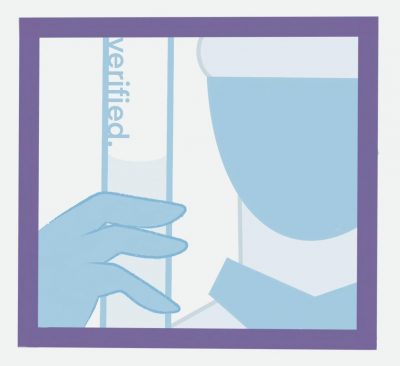The COVID-19 pandemic has brought a variety of debates to our attention throughout the last year, the most recent of which being vaccine passports: a documentation or medical record of the COVID-19 vaccines a person has received.
Vaccine passports aren’t a new concept at all. U.S. travelers flying to regions of South America and Africa carried a yellow slip of paper, issued by the World Health Organization, documenting your vaccines for the yellow fever in the 1950s. Going into the 1990s, this Yellow Card was normal and eventually expanded to include polio, meningitis, hepatitis, measles and tuberculosis. It is still being used today.
At the height of the smallpox epidemic in 1885, travelers were also required to show proof of vaccinations or be vaccinated on the spot to enter the United States. In these instances, requiring documentation has been effective.
The point of this paper slip is to limit the transmission of diseases, both for the country of origin and the destination. It’s a reasonable security measure, and since it was once so normalized, there should already be a precedent for its acceptance as an additional step in customs or airport security.

Yet, as with most subjects in the United States, the idea of a vaccine passport has become politicized and partisan. Accordingly, the federal government has assured the public that these passports will not be mandated for travel after the pandemic ends.
In Europe, there is less opposition. The United Kingdom is planning to test vaccine passports, and the European Union Commission will be implementing Digital Green Certificates — a more comprehensive version of the vaccine passport that covers a traveler’s COVID-19 status and prevents discrimination against the non-vaccinated as doses are still rolling out.
China and Japan are also planning digital passports, and Israel recently started using their own “Green Passport.”
When did safety and public health become so controversial? For those who are crying fascism, is it better to risk your own health as well as the health of millions around you to prove a point?
An exorbitant amount of effort is funneled into convincing the U.S. population to present any type of united front, even if the action required is simple, harmless and personally advantageous. It doesn’t help that medical misinformation has been rampant since the beginning of the pandemic.
However, there are some warranted criticisms of the vaccine passport, such as concerns regarding data privacy and Health Insurance Portability and Accountability Act violations with a move to a digital platform.
Furthermore, experts have warned that it could increase global disparity and divide countries based on their wealth and vaccine availability. Many countries and developing nations don’t have the access to vaccine supplies that the United States does, or the financial resources to build vaccination sites and infrastructure.
If these digital vaccine passports are black-and-white to the point of simply requiring vaccinations versus being amenable to negative tests or recovered positive cases like the EU, it could further exacerbate global class privilege.
But vaccine passports are imminent and unavoidable if we want to continue to limit the spread of the coronavirus and truly regain a sense of normalcy. Imported cases present a high risk of spreading the virus, and once the vaccine becomes widely available in the majority of countries, required proof of vaccination could help contain COVID-19 and its variants to specific regions while safely revitalizing local economies and tourism.
Whether or not the U.S. government creates a vaccine passport, the U.S. private sector and schools likely will. States are also permitted to create their own passes separate from the federal government, and New York has already done so with the “Excelsior Pass,” which is currently being developed and could grant access to public venues.
In the meantime, we could work toward adopting a tiered and non-discriminatory passport — modeled after the EU’s Digital Green Certificate. Else, international students and those traveling for work from other countries that may not have the same access to vaccines could face additional barriers when returning to U.S. universities in the Fall. And overall, those who already face increased inequities across the globe will be further set back by their restricted travels.
Vaccine passports are inevitable, either for international travel, individual states, private businesses, schools or all of the above.
If, as an American, you are so offended by the idea of being “forced” to protect yourself, or simply provide proof of protection, perhaps you simply need to readjust your perspective. You should frame it as an opportunity to take advantage of your vaccine privilege and uphold your responsibility to the public, rather than seeing it as an infringement of your constitutional rights.
Because whether you like it or not, vaccine passports are coming.